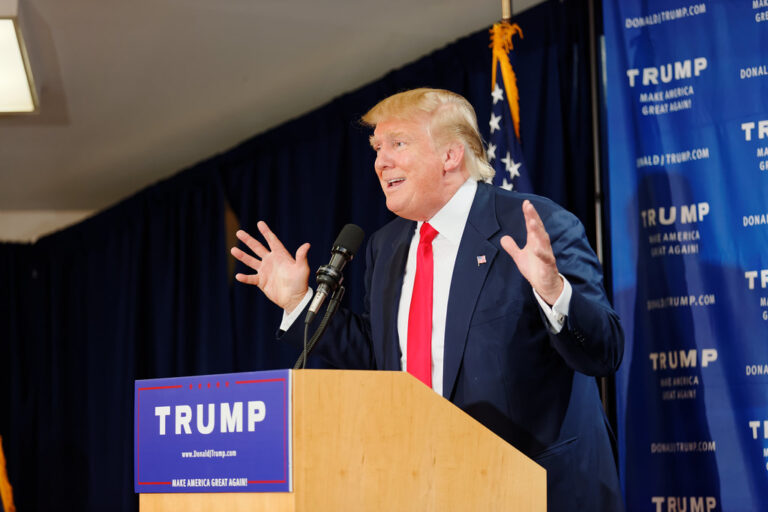Key Takeaways:
- Tesla shares fell after tensions rose between Elon Musk and Donald Trump.
- Investors are worried about the impact of their conflict on Tesla’s future.
- The public dispute highlights the risks of mixing business and politics.
Tesla Stock Takes a Hit as Musk and Trump Clash
The world of electric cars and politics collided on Thursday, causing a stir in the stock market. Investors sold off shares in Tesla, driving the stock price down. The reason? A heated exchange between Tesla’s CEO, Elon Musk, and former U.S. President Donald Trump.
The two billionaire leaders, known for their strong personalities, found themselves at odds. Their disagreement quickly made headlines and raised concerns among investors. After all, when two powerful figures clash, it can have big consequences for the companies they lead.
What Happened?
The trouble started when Musk and Trump exchanged words publicly. Their disagreement wasn’t just about business or politics—it was personal. Investors weren’t sure how this tension would play out, but they knew it couldn’t be good for Tesla.
As the news spread, many investors decided to sell their Tesla shares. They were worried that the conflict could hurt Tesla’s reputation or distract Musk from running the company. By the end of the trading day, Tesla’s stock had dropped significantly.
Why Are Investors Worried?
Investors are nervous because they know how much Tesla relies on Elon Musk. He’s not just the CEO; he’s the face of the company. If Musk is caught up in a public feud, some fear it could take his focus away from Tesla’s goals.
“Imagine if your favorite sports team’s star player got into a fight with a rival coach,” said one investor. “You’d wonder if they could still win the game. That’s how we feel about Musk and Trump right now.”
The Domino Effect
The clash between Musk and Trump didn’t just affect Tesla. It also raised questions about how political disagreements can impact the stock market. Other companies, especially those with high-profile CEOs, could face similar risks.
“This isn’t just about Tesla or Musk,” explained a financial analyst. “It’s about how personal relationships and public image can influence investor confidence.”
What’s Next for Tesla?
For now, the future is uncertain. Tesla’s stock could recover if the tension between Musk and Trump fades. But if the conflict grows, it could lead to more selling and a bigger drop in the stock price.
Musk and Trump both have large followings, and their fans might take sides. This could create even more drama, especially if the two continue to exchange words publicly.
The Bigger Picture
This situation isn’t just about two famous figures disagreeing. It shows how closely tied business and politics can be. When leaders clash, it can have ripple effects across industries and markets.
As one investor put it, “When billionaires fight, everyone watches. But for us, it’s about dollars and cents. We just want to know how this affects our investments.”
Spotlight on Musk and Trump
Elon Musk and Donald Trump are both known for their strong personalities and unfiltered opinions. Musk has built his reputation as a visionary entrepreneur, while Trump is famous for his bold statements and polarizing views.
Their clash isn’t surprising to many. Both men are used to getting their way and aren’t afraid to speak their minds. But when they’re on opposite sides, it creates drama that captivates the public.
How Did This Happen?
The exact details of their disagreement aren’t entirely clear, but it’s no secret that the two have had differences in the past. Musk has criticized Trump’s leadership, and Trump has pushed back against Musk’s ideas.
This time, however, their exchange was more heated than usual. It caught the attention of investors, who began selling Tesla shares as a precaution.
What Do Investors Expect Next?
Investors are waiting to see how this situation unfolds. They’ll be watching closely to see if Musk and Trump can put their differences aside or if the tension escalates further.
In the meantime, many are taking a cautious approach. “We’re not panicking,” said one investor. “But we’re keeping a close eye on things. The stock market doesn’t like uncertainty, and this is as uncertain as it gets.”
Why Should You Care?
Even if you’re not a Tesla investor or a fan of Musk or Trump, this story matters. It shows how quickly things can change in the stock market and how important leadership is for a company’s success.
As one expert explained, “When the people in charge make headlines for the wrong reasons, it can have real consequences. This is a reminder that the stock market is tied to more than just numbers—it’s tied to people.”
The Bottom Line
Tesla’s stock drop on Thursday is a reminder of how connected the worlds of business and politics are. When leaders clash, it can have ripple effects that impact everything from share prices to investor confidence.
For now, all eyes are on Musk and Trump. Will they resolve their differences, or will the tension continue to grow? Only time will tell. But one thing is certain: investors are watching closely, and they’re ready to act if things take a turn for the worse.







